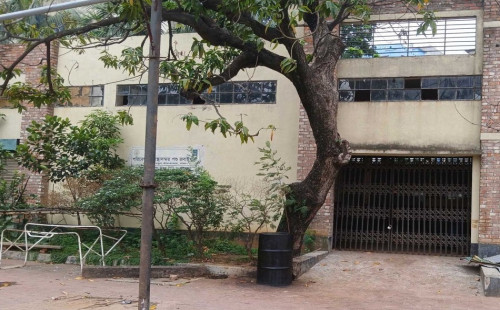Cybercrime cases pile up as trials stall for years

On October 30, 2017, police arrested
Amir Hossain, 37, in Dhaka's Moghbazar area on charges of digital forgery.
According to
case documents, Amir opened websites in the name of fake organisations,
published false job advertisements, collected money from job seekers, and
misappropriated the funds.
On the day of his arrest, police filed a case against him
under the Information and Communication Technology (ICT) Act, 2006 with Ramna
Model Police Station.
On May 29 the
following year, investigator Ansar Uzzaman, an inspector of the Police Bureau
of Investigation, submitted a charge sheet against the lone accused.
He also named 15
individuals, including six police officers, as prosecution witnesses.
More than six
years have passed since the Cyber Tribunal (Bangladesh) framed charges against
Amir, yet only one prosecution witness testified on July 3 this year, according
to court records.
The Daily Star
found that 16 hearings were held in the last six years but the prosecution
failed to produce most of the 15 witnesses.
Amir went into
hiding after securing bail.
"In most
hearings in the past, the tribunal has issued non-bailable arrest warrants
against the witnesses, but they did not appear to give statements," a
court staffer told The Daily Star.
"Police are
responsible for implementing the court's orders regarding producing witnesses.
If police were prompt in this regard, the backlog of cases would have been
reduced to a great extent," the staffer said.
This is just one
of 204 cases filed under cyber laws that have remained pending with eight cyber
tribunals across the country for more than five years, according to the latest
report of the Supreme Court (SC).
Legal experts
said trials dragging on for years cause serious hardship for both accused and
complainants. They have long raised concerns about the slow pace and
inefficiency of cybercrime case trials.
Supreme Court
lawyer Ishrat Hasan said with Bangladesh becoming a digitally connected
society, cybercrimes have grown to include hacking, phishing, online
harassment, revenge porn, financial fraud, digital defamation, and data theft.
"In
response, the government has enacted several laws over the past two decades to
address emerging threats of cyberspace. However, despite this legislative
evolution, the justice delivery system, especially the cyber tribunals, remains
inadequate, under-resourced, and overburdened," she said.
"In 2025,
the interim government promulgated the Cyber Protection Ordinance (CPO), 2025,
addressing some gaps in earlier laws. It recognises internet access as a civil
right, criminalises AI-driven cyberattacks and online harassment of women and
children, makes speech-related offences bailable, establishes a Cyber Security
Council with civil society representation, and empowers courts to dismiss false
or fabricated cyber cases at an early stage," Ishrat added.
Though disposal
of cybercrime cases has increased slightly this year, more than 4,452 lawsuits
were still pending with cyber tribunals as of June 30, the SC report said.
Between April 1
and June 30, a total of 367 new cases were filed and 1,324 cases were disposed
of by the tribunals, which are set up in eight divisional cities.
As of July 14, a
total of 116 accused in cyber cases were in jail, according to the Department
of Prisons.
















